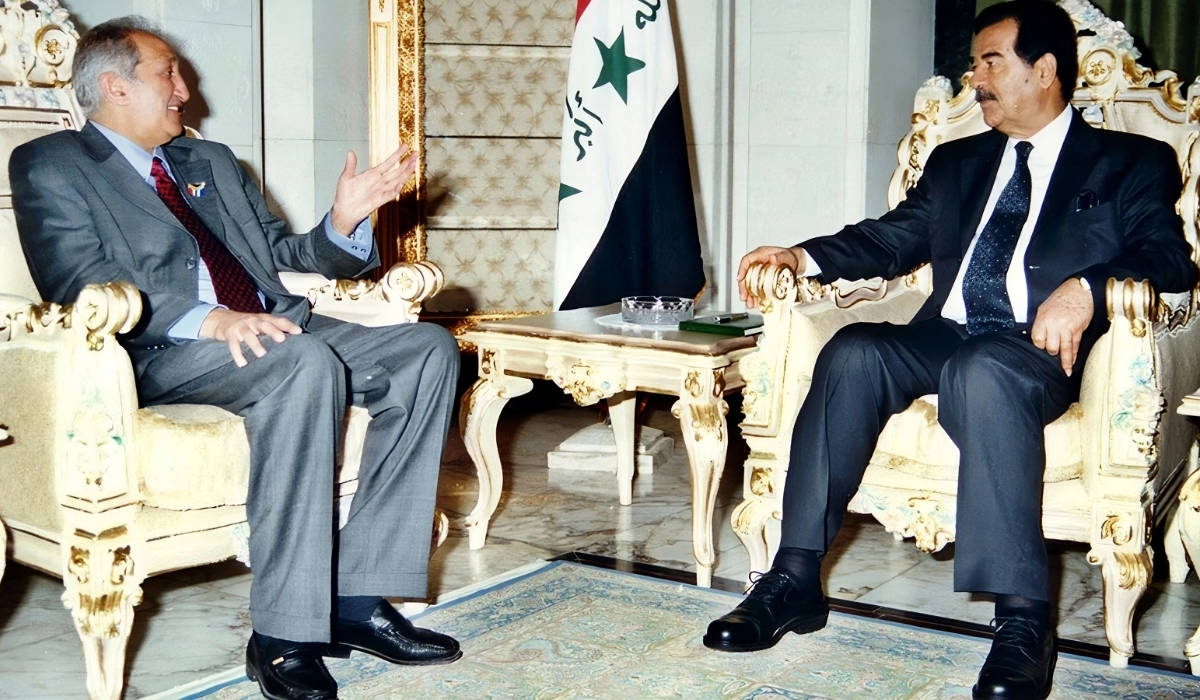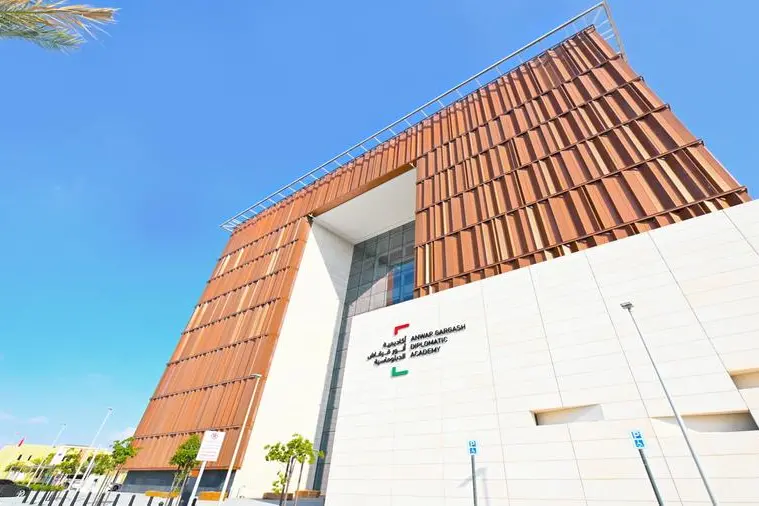The world mourns the loss of an exceptional diplomat and statesman with the passing of Aziz Pahad. His life’s work serves as an enduring testament to his unwavering commitment to justice, peace, and equality. Throughout his remarkable journey, Aziz Pahad left an indelible mark, not only on South Africa, but also on the international stage.
My initial encounter with Aziz Pahad took place in London in January 1987. At that time I had just completed my term as the President of the Student Representative Council (SRC) at the University of Durban-Westville, coinciding with the State of Emergency. It was during this period that the esteemed struggle veteran, and former Robben Island political prisoner, Billy Nair, approached me with a significant mission – to arrange a clandestine meeting in Harare for a group of students to engage with the African National Congress (ANC) leadership.
As per Aziz Pahad’s discreet request, our rendezvous occurred at the newspaper stand outside of the iconic Russel Square Tube station. A towering figure with a distinguished beard, Aziz welcomed me warmly, and swiftly led me through a secluded route into a hotel bar, where our enduring journey of friendship, comradeship, and mentorship commenced. It was under his guidance that my path in international relations was forged.
Born on 06 July 1940 in Johannesburg, South Africa, Aziz Pahad’s early life was profoundly influenced by the turbulent era of apartheid. This period was marked by the oppressive regime’s relentless attempts to segregate communities along racial lines. Like countless others, Pahad recognized the urgent need for change and wholeheartedly devoted his life to the struggle for freedom and equality.
Aziz Pahad’s unwavering commitment to justice led him to become an integral part of the anti-apartheid movement. His affiliation with the ANC set him on a trajectory that would define his life. Pahad played pivotal roles in various facets of the struggle, ranging from clandestine activism to international diplomacy.
One of the watershed moments in Aziz Pahad’s life was his involvement in the negotiations that ultimately dismantled apartheid, and ushered in a democratic South Africa. He served as a member of the ANC’s delegation during talks with the apartheid government in the 1980s. These negotiations, culminating in the historic 1994 elections, marked a pivotal turning point in the nation’s history. Pahad’s diplomatic acumen, coupled with his unyielding commitment to justice, laid the foundation for a peaceful transition to democracy.
During this period, I had the privilege of interacting with Aziz once again, following his return from exile. In 1990, having acquired a Master’s Degree in Law, specialising in conflict resolution from Georgetown University, I visited Aziz at the ANC Headquarters in Shell House. Upon learning about my specialisation, and my intention to establish an Institute, later named ACCORD, I was encouraged to appoint the Principals of the historically black universities as Trustees of the Institute, and to extend its services to all political parties, and the continent at large. Thus, ACCORD came into being, and Aziz Pahad’s involvement with ACCORD persisted throughout his tenure as South Africa’s Deputy Minister of Foreign Affairs, and later in his capacity as a Senior Political Advisor to ACCORD.
Following the democratic elections, Aziz Pahad’s dedication to his nation continued to shine. He assumed the role of Deputy Minister of Foreign Affairs under the leadership of President Nelson Mandela and continued in that role under the presidency of former President Thabo Mbeki. In this capacity, he worked tirelessly to fortify South Africa’s international relations, and champion its values of equality and justice.
Aziz Pahad’s dedication to diplomacy extended beyond South Africa’s borders. He actively engaged with the international community on pressing issues, including peacekeeping efforts in various conflict zones. His diplomatic achievements garnered the respect of his peers, solidifying his reputation on the global stage.
A defining chapter of Aziz Pahad’s tenure as Deputy Minister of Foreign Affairs was his involvement with the Non-Aligned Movement (NAM). He played a pivotal role in advocating for the interests of developing nations on the global stage. Pahad’s leadership within NAM proved instrumental in addressing critical issues, such as poverty, inequality, and the rights of marginalised communities. It is worth noting that, as the debate on non-alignment resurfaces, Pahad’s wisdom would have been invaluable in guiding the discourse.
In his later years, as a Senior Political Advisor to ACCORD, his presence at ACCORD’s meetings with warring factions in regions such as Palestine, Syria, Sudan, South Sudan, Burundi, and the Democratic Republic of the Congo, among others, brought unparalleled knowledge, expertise, and gravitas. Pahad was a familiar name to everyone we encountered, either through personal interactions or his reputation. For those of us fortunate enough to learn from his vast experience, it was a rare and invaluable opportunity.
Beyond his diplomatic achievements Aziz Pahad was known for his humility and approachability. He possessed a unique ability to bridge divides and forge connections with individuals from all walks of life. His warmth and compassion endeared him, not only as an effective diplomat, but also as a cherished figure among those who had the privilege of knowing him.
In addition to imparting lessons in international relations, Aziz Pahad also left us with profound teachings in humility, kindness, generosity, and the art of being a better human being. I fondly recall how, during our travels, he never failed to share some fruit from the hotel breakfast with our drivers. Through such simple gestures, he touched the lives of many and imparted invaluable lessons.
This Article was first published in the Independent Online News (IOL) on 28 September 2023, and can be accessed here.








